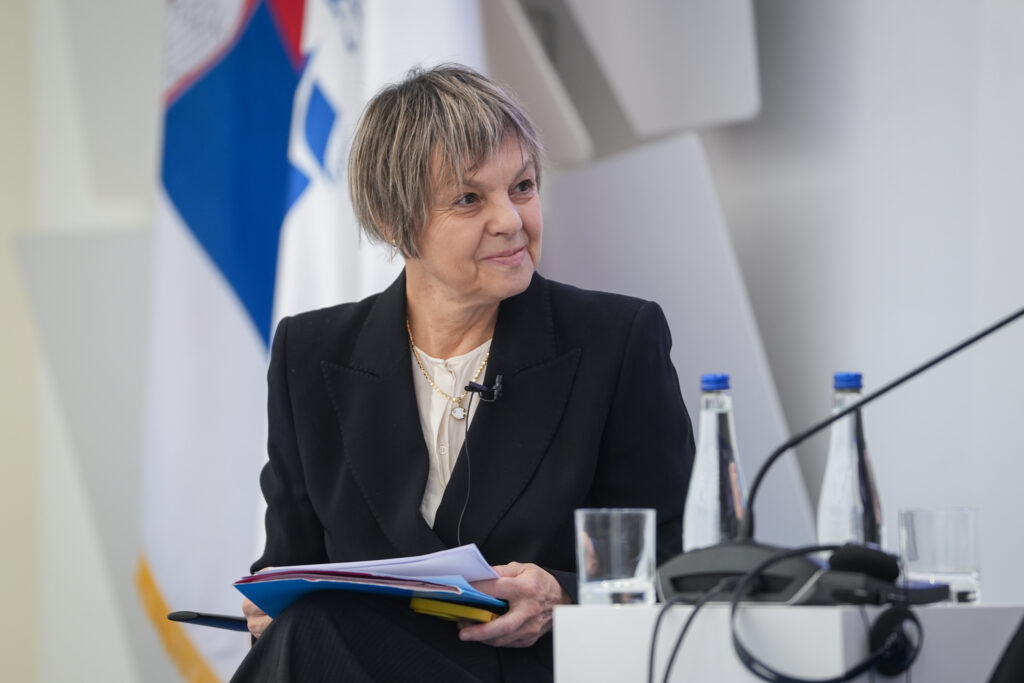This panel, moderated by Ljiljana Lončar of UN Women Serbia, brings together distinguished speakers to explore gender equality as a cornerstone of sustainable development. Panelists include Plamena Halacheva, Deputy Head of the EU Delegation to Serbia; H.E. Anke Konrad, Ambassador of Germany to Serbia; Snežana Paunović, Vice President of the Serbian Parliament; and Smiljka Jovanović, Provincial Secretary for Finance of Vojvodina. Organised by Color Media Events, this discussion took place during the World in 2025 Conference
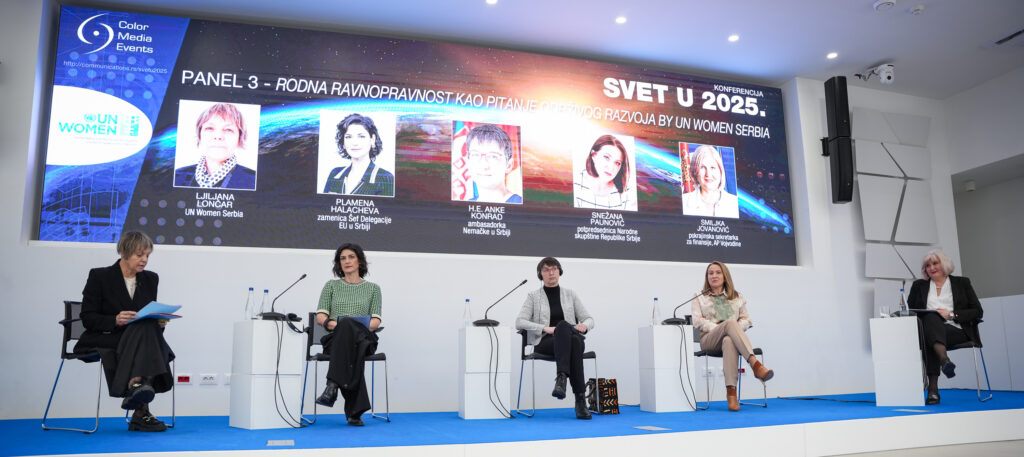 As the world inches closer to 2025, significant milestones in the journey toward gender equality beckon us to reflect on the progress and challenges that remain. This pivotal year marks a decade since the adoption of the UN Agenda for Sustainable Development 2030, which prioritises gender equality as a standalone goal under Sustainable Development Goal 5. It also commemorates the 30th anniversary of the Beijing Declaration and Platform for Action, a transformative global framework for advancing the rights and empowerment of women and girls.
As the world inches closer to 2025, significant milestones in the journey toward gender equality beckon us to reflect on the progress and challenges that remain. This pivotal year marks a decade since the adoption of the UN Agenda for Sustainable Development 2030, which prioritises gender equality as a standalone goal under Sustainable Development Goal 5. It also commemorates the 30th anniversary of the Beijing Declaration and Platform for Action, a transformative global framework for advancing the rights and empowerment of women and girls.
Lončar noted that despite its importance, progress in this area remains frustratingly slow. This was underscored during ongoing global consultations, which have brought together government representatives, civil society, academics, youth leaders, and UN officials to evaluate advancements toward gender equality. While these conversations have highlighted notable efforts, they also reveal persistent barriers hindering comprehensive change.
EU’s Commitment to Gender Equality
Plamena Halachova, Deputy Head of the EU Delegation in Serbia, delivered a powerful address ahead of the Gender Equality Forum, emphasising the European Union’s unwavering commitment to advancing gender equality. The forum’s timing—on International Human Rights Day and the conclusion of the 16 Days of Activism Against Gender-Based Violence—served as a poignant reminder of the challenges that remain, particularly in combating gender-based violence, which she identified as the most pervasive human rights violation globally.
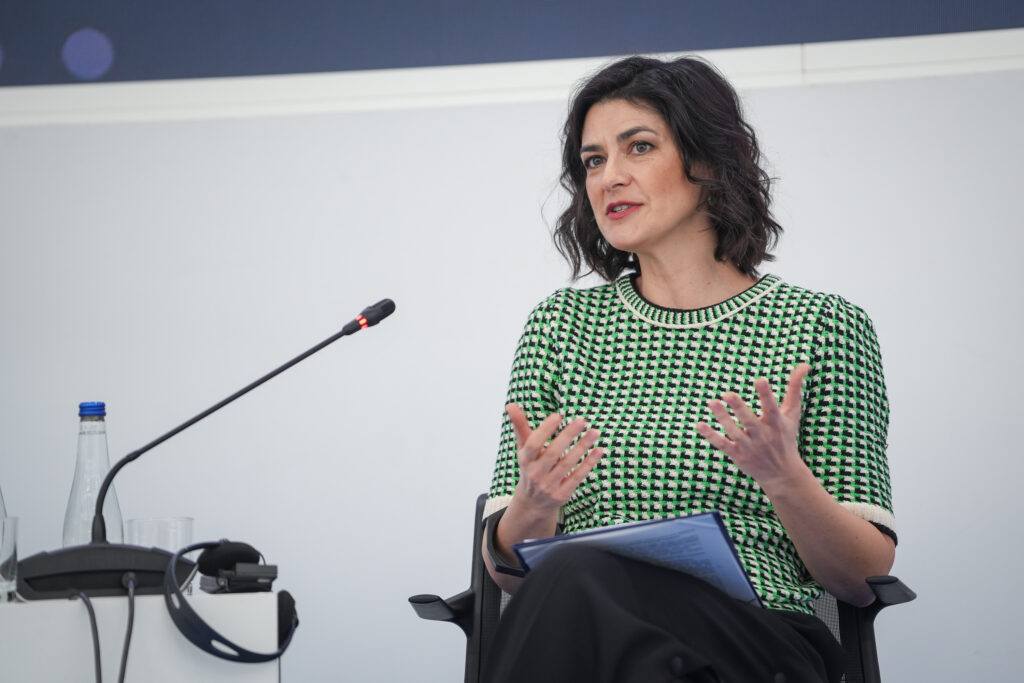 Halachova traced the EU’s dedication to gender equality to the Treaty of Rome in 1957, highlighting the significant progress. The Gender Equality Index, with an average score of over 70 out of 100 for EU member states, and the EU’s strong presence in the World Economic Forum’s Global Gender Gap Report, where 7 of the top 10 countries are European, showcase the strides made. Sweden’s near-equality score of over 80% is an inspiring example.
Halachova traced the EU’s dedication to gender equality to the Treaty of Rome in 1957, highlighting the significant progress. The Gender Equality Index, with an average score of over 70 out of 100 for EU member states, and the EU’s strong presence in the World Economic Forum’s Global Gender Gap Report, where 7 of the top 10 countries are European, showcase the strides made. Sweden’s near-equality score of over 80% is an inspiring example.
The EU’s achievements are based on legislative and policy advancements, gender mainstreaming, and financial support. Notable milestones include the EU’s accession to the Istanbul Convention, the adoption of the Women on Board Directive, and the first EU-wide legislation to combat domestic violence. However, Halachova stressed that the challenge now lies in ensuring these frameworks are effectively implemented across all member states.
Gender mainstreaming—integrating a gender perspective into all policies—is another cornerstone of the EU’s approach, applied within member states and in cooperation with partner countries like Serbia. Financially, the EU is intensifying its support, with 80% of its assistance to third countries incorporating a gender perspective. Allocations for gender-related policies surged from €9 billion in 2021 to €13 billion in 2022.
Specific to Serbia, the EU has provided €4 million through its partnership with UN Women to enhance the country’s strategic and policy frameworks while supporting grassroots initiatives. Halachova highlighted the importance of specialised services for victims of sexual violence, such as the dedicated hospital wing in Vrbas, calling for similar facilities throughout Serbia.
Halachova concluded by calling for collective action and awareness to ensure gender equality becomes a reality. “We all must work together to make specialised services and broader gender equality a priority,” she said, underscoring the EU’s commitment to fostering inclusive and sustainable communities.
Germany’s Commitment to Gender Equality
Anke Konrad, the German Ambassador to Serbia, brought a unique perspective to the discussion on gender equality at the World in 2025 Conference. She framed Sustainable Development Goal 5 (SDG 5)—achieving gender equality—as a “double challenge.” On the one hand, Germany continues its internal efforts to address gender imbalances, particularly by encouraging more girls and women to pursue careers in the MINT sectors (mathematics, information technology, natural sciences, and technology). Konrad noted that women remain underrepresented in these fields despite equal academic performance.
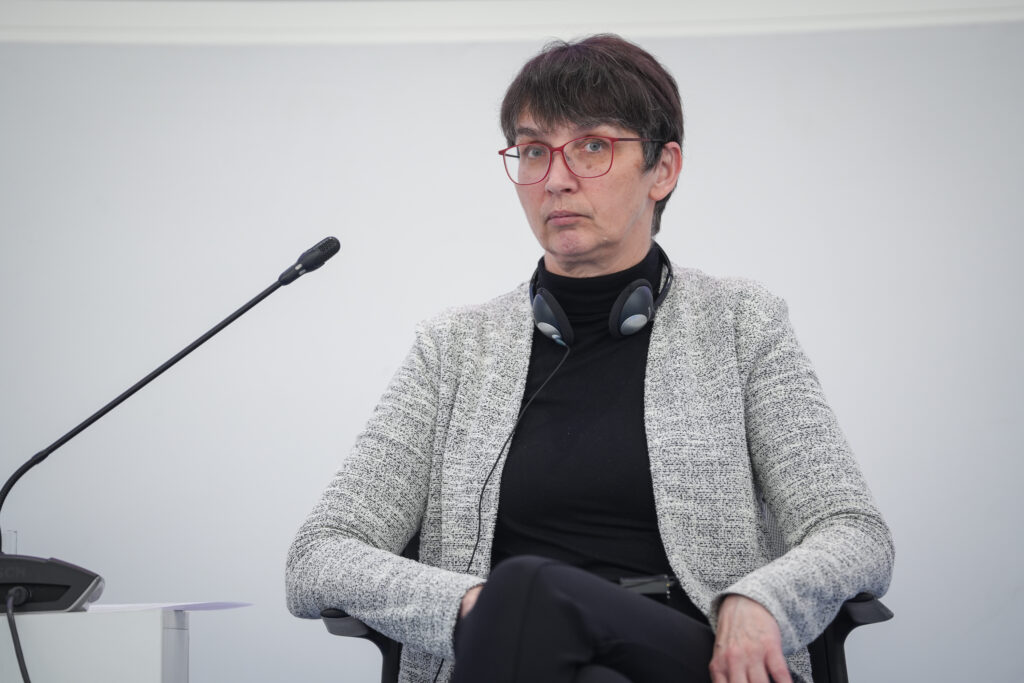 On the other hand, Germany is equally committed to supporting gender equality globally, including in partner countries like Serbia. Konrad highlighted a long-standing partnership between Germany and Serbia in the energy sector, where significant investments—exceeding €1 billion over the past 15 years—have primarily involved male-dominated workplaces. Recognising this imbalance, Germany initiated a project to increase women’s participation in the energy sector, focusing on green energy and the transition.
On the other hand, Germany is equally committed to supporting gender equality globally, including in partner countries like Serbia. Konrad highlighted a long-standing partnership between Germany and Serbia in the energy sector, where significant investments—exceeding €1 billion over the past 15 years—have primarily involved male-dominated workplaces. Recognising this imbalance, Germany initiated a project to increase women’s participation in the energy sector, focusing on green energy and the transition.
The initiative, now in its third year, began by reviving a dormant network of women in the energy sector in Serbia. This network is a hub for women interested in engaging at various levels, whether in local governance, national politics, or technical and managerial roles within the energy transition. To further support this effort, the program introduced an annual award to recognise the achievements of women in the sector.
A new project phase is now underway, with a pilot initiative in Novi Sad. This program provides specialised training for women aspiring to work in the renewable energy sector, such as photovoltaic technology, or as consultants managing green transition projects. Despite progress, Konrad acknowledged the persistent societal challenges. She stressed that even with the best resources and training, the success of these initiatives depends on broader societal acceptance of women in roles traditionally dominated by men. Without this cultural shift, the project risks falling short of its goals.
“We can double, triple, or even multiply by ten our project resources, but as long as society is not ready to support women in these roles, the project will not succeed,” Konrad remarked. The initiative also focuses on community outreach to foster an environment where women’s participation in the energy sector is accepted and encouraged.
Advancing Gender Equality in Serbian Politics
Snežana Paunović, Vice President of the Serbian Parliament, highlighted Serbia’s progress in promoting gender equality through legislative measures to increase women’s political participation. The introduction of gender quotas requires that at least 40% of candidates on electoral lists belong to the underrepresented gender—currently women.
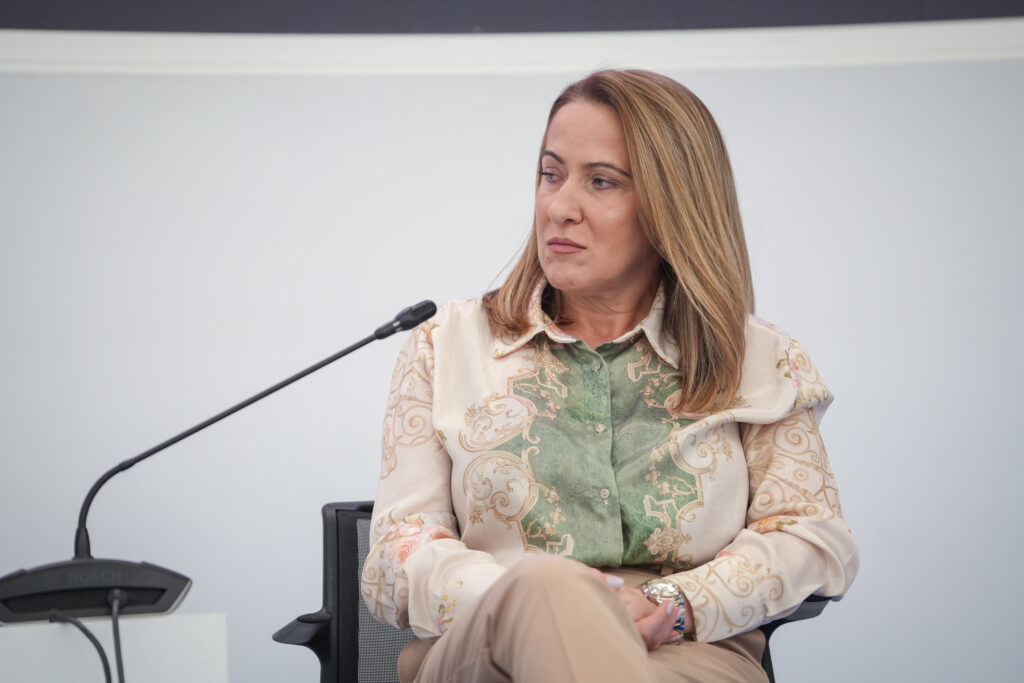 Paunović remarked on an intriguing demographic trend: with women comprising 52% of Serbia’s population, there is a statistical possibility that men may eventually become the less represented gender in politics. However, she noted a persistent challenge: while women are included on candidate lists, they often relinquish their mandates, which are then filled by male counterparts.
Paunović remarked on an intriguing demographic trend: with women comprising 52% of Serbia’s population, there is a statistical possibility that men may eventually become the less represented gender in politics. However, she noted a persistent challenge: while women are included on candidate lists, they often relinquish their mandates, which are then filled by male counterparts.
Paunović emphasised the need for systemic recognition of women’s capabilities across all aspects of society and life. Despite progress, a significant goal remains unfulfilled—establishing a women’s parliamentary network, which could further enhance collaboration and support for gender equality initiatives within Serbia’s political landscape.
A Key to Economic and Social Development in Vojvodina
At the World in 2025 Conference, Smiljka Jovanović, Secretary for Finance of the Vojvodina Autonomous Province, highlighted the critical role of gender equality not only as a fundamental human right and a driver of economic and social development. Jovanović underscored the importance of gender-responsive budgeting as a powerful tool for promoting gender equality. As the primary mechanism for distributing state funds, the budget offers an opportunity to strengthen gender components across all sectors of society. These components, she explained, extend beyond male and female representation to include vulnerable and minority groups, ensuring an inclusive approach to policy and development.
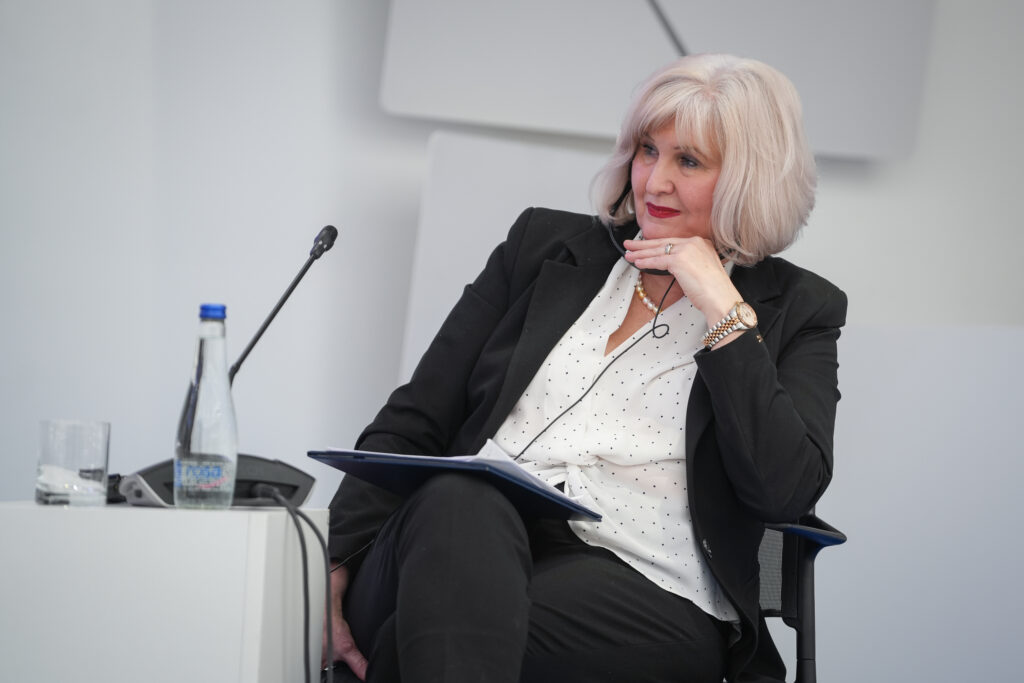 Various institutions have supported the process, notably the United Nations Agency for Gender Equality, which provided technical assistance and expertise. This collaboration has helped Vojvodina integrate gender considerations into its financial framework, ensuring that public spending aligns to advance equality. Jovanović’s remarks highlighted the broader implications of gender-responsive budgeting, framing it as a mechanism for achieving equality and a catalyst for economic growth and societal progress. By leveraging this approach, Vojvodina demonstrates how financial policy can serve as a foundation for creating a more inclusive and equitable future.
Various institutions have supported the process, notably the United Nations Agency for Gender Equality, which provided technical assistance and expertise. This collaboration has helped Vojvodina integrate gender considerations into its financial framework, ensuring that public spending aligns to advance equality. Jovanović’s remarks highlighted the broader implications of gender-responsive budgeting, framing it as a mechanism for achieving equality and a catalyst for economic growth and societal progress. By leveraging this approach, Vojvodina demonstrates how financial policy can serve as a foundation for creating a more inclusive and equitable future.
